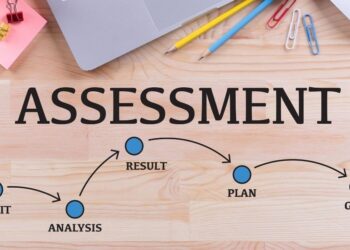Discovering the Power Within: The Importance of Lifelong Learning
Explore how lifelong learning empowers individuals and shapes the future of work in our rapidly evolving world, and why it’s more critical now than ever.
1. The Rising Tide of Lifelong Learning
In today’s dynamic world, lifelong learning is no longer a luxury but a necessity. The modern workplace demands continuous adaptation and skill enhancement, making lifelong learning a crucial element for sustained success and relevance. Are you ready to embrace the journey of continuous growth?
2. The American Perspective on Preparedness
Despite recognizing the importance of lifelong learning, many Americans feel unprepared for the evolving job market. This gap highlights the urgent need for accessible and effective lifelong learning opportunities that can bridge the skills gap and empower individuals to thrive in their careers.
3. Global Trends in Adult Learning
Across OECD countries, the participation rates in adult learning haven’t seen significant increases. Furthermore, much of the training available is short-term, failing to meet the demands of the rapidly changing labor market. This poses a challenge for individuals and economies alike.
4. Adapting Through Education and Investment
Higher education institutions in the US are stepping up to meet these challenges by offering flexible career development pathways. Additionally, investments in lifelong learning are on the rise, exemplified by Santander US’s $25 million commitment to education, employability, and entrepreneurship. These initiatives aim to equip individuals with the skills and resources needed to navigate the modern workforce.
From Traditional to Digital: Navigating Modern Adult Education Landscapes
Explore the evolving landscape of adult education as traditional methods give way to digital frameworks, addressing urgent needs for lifelong learning.
1. Skills Gap in the Digital Age
The transition to digital and lifelong learning frameworks reveals significant skills gaps. In 2025, a considerable portion of the U.S. adult population struggles with basic literacy and numeracy. These challenges highlight the urgent need to adapt educational approaches to meet the demands of a rapidly evolving job market.
2. Digital Tools as Bridges
To combat these challenges, digital tools are being increasingly utilized. Educational apps are targeting everything from basic skills to workplace and financial literacy, aiming to bridge the divide between current skills and workforce readiness. These tools offer accessible and adaptable learning opportunities for adults seeking to enhance their capabilities.
3. Funding and Support
Despite the growing need for adult education, funding remains a critical concern. As advocacy efforts intensify, the sector is grappling with potential federal budget cuts and wage equity issues that affect teacher retention and system capacity. Sustained support is crucial to ensuring that all adults can fully participate in modern economic life.
4. The Imperative of Lifelong Learning
The trends indicate an urgent need for robust digital initiatives and continuous support. With millions of adults facing literacy and numeracy challenges, ensuring access to lifelong learning opportunities is more critical than ever. Addressing these issues is essential for fostering a skilled workforce and promoting inclusive economic growth.
Earning While Learning: Workplace Strategies for Skill Advancement
Discover how continuous learning directly ties into workplace success and what skills are most in-demand for future growth.
1. The Rising Demand for Data Science Skills
The modern workplace is rapidly evolving, and with it comes an increased need for continuous skill development. A recent study indicates a significant surge in the demand for data science skills. Managers are not only seeking to enhance their current teams’ capabilities but also planning to recruit new talent proficient in this area.
2. Bridging the Skills Gap
Many U.S. managers recognize the importance of bolstering their teams’ skills, particularly in areas like data science and financial mathematics. According to a 2025 Gallup survey, a substantial percentage of managers would like their employees to have stronger skills in these areas.
3. Skills-Based Hiring on the Rise
The emphasis on demonstrable skills is reshaping hiring practices. Companies are increasingly prioritizing competencies over traditional degrees, underscoring the significance of lifelong learning for both employees and organizations. This shift highlights the need for individuals to continuously update their skill sets to remain competitive in the job market.
4. Investing in a Dynamic Learning Ecosystem
Companies that prioritize ongoing training and development, directly linked to business objectives, are better prepared to navigate disruptions and maintain a competitive edge. Creating a dynamic learning ecosystem within an organization can foster resilience and adaptability among employees.
Unlock the Web: How Online Certifications Transform Careers
Explore how online certifications are reshaping education and career paths, offering flexibility and broader access to skill development.
1. The Rise of Online Learning
Online learning is rapidly becoming a mainstream educational pathway in the United States. Recent data indicates a substantial number of college students are engaging with online courses, either as their sole form of education or in combination with traditional classroom settings. This shift highlights the growing acceptance and convenience of digital education, making it easier for individuals to pursue lifelong learning and acquire new skills.
2. State-Level Engagement in Online Courses
The adoption of online learning varies considerably by state. For instance, Arizona leads with over half of its students exclusively enrolled in online programs. Alaska also demonstrates strong engagement, with a significant percentage of students favoring online-only education. These figures suggest that the flexibility and accessibility of online platforms are particularly appealing in certain regions.
3. National Trends in Online Education
Across the nation, online certifications are playing an increasingly vital role in workforce development. These credentials enable learners to enhance their skills and pursue new career opportunities, regardless of their geographic location. As web-based education becomes more normalized, it is expected to further drive career mobility and upskilling initiatives for Americans. The following table illustrates the varying degrees of online course enrollment across different states:
| State | Enrolled Exclusively in Online Courses | Enrolled in Some Online Courses | Not Enrolled in Any Online Courses |
| Alabama | 28% | 29% | 43% |
| Alaska | 41% | 31% | 28% |
| Arizona | 51% | 20% | 29% |
| Arkansas | 26% | 28% | 46% |
| California | 27% | 29% | 44% |
| Colorado | 27% | 20% | 53% |
| Delaware | 30% | 33% | 37% |
| District of Columbia | 23% | 18% | 59% |
| Florida | 30% | 31% | 39% |
Data source: BestColleges.com “Online Learning Statistics” June, 2025
Q&A
Question 1: What is the central argument regarding lifelong learning presented in the provided text?
Answer: The texts strongly emphasize the necessity of lifelong learning in today’s rapidly evolving job market. They highlight the growing skills gap, particularly in areas like data science and digital literacy, and advocate for increased access to flexible and accessible learning opportunities, including online courses, certifications, and open university programs, to bridge this gap and ensure individual and economic success. The urgency is underscored by statistics showing significant portions of the US adult population lacking basic literacy and numeracy skills.
Question 2: What are some of the challenges hindering widespread adoption of lifelong learning in the US?
Answer: Several challenges are identified. Many Americans feel unprepared for the evolving job market despite recognizing the importance of lifelong learning. Participation rates in adult learning programs remain low across OECD countries, with much of the available training being short-term and inadequate. Furthermore, funding for adult education remains a critical concern, with potential budget cuts and wage equity issues impacting teacher retention and program capacity.
Question 3: How are institutions and organizations responding to the need for lifelong learning?
Answer: Higher education institutions are adapting by offering more flexible career development pathways. Private sector investments in lifelong learning are increasing, as exemplified by Santander US’s significant commitment to education, employability, and entrepreneurship. Additionally, the rise of digital tools, including educational apps focusing on various skills, is helping to bridge the skills gap and provide accessible learning opportunities. Companies are also increasingly prioritizing skills-based hiring and investing in internal training programs to enhance employee capabilities.
Question 4: What role do online certifications and open universities play in addressing the skills gap?
Answer: Online certifications and open universities offer flexible and accessible pathways to skill development, particularly beneficial for working adults and parents. The increasing popularity of online learning, demonstrated by high enrollment rates in some states, showcases the growing acceptance and convenience of digital education. These platforms allow individuals to acquire new skills and advance their careers regardless of geographic location or personal circumstances, thus contributing significantly to lifelong learning initiatives and workforce development.













